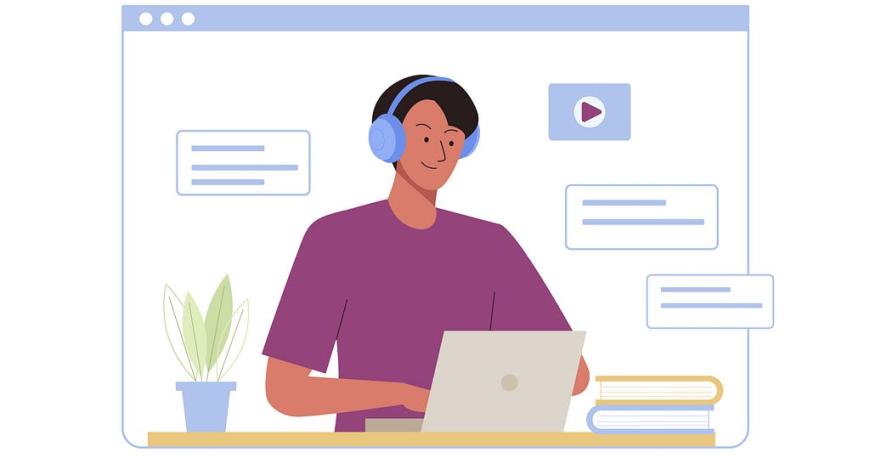
An invaluable resource for everything: From public speaking to the human brain
By Lauren Rebecca Thacker
MIT Open Learning’s OpenCourseWare resources have been part of Sangat Tiwari’s life since he was in 8th grade. Sometimes, he came across the resources by chance, like when he was looking for ways to improve his public speaking skills and found Patrick Winston’s How to Speak on the OpenCourseWare YouTube channel. Other times, his teachers recommended courses to deepen his knowledge, or he sought out specific courses to supplement what he was learning in class. Now in 11th grade, he uses the resources to complement his biology and chemistry courses and has become an OpenCourseWare advocate to his friends, family, and teachers.
“Professor Winston’s lecture on public speaking is super popular, and I stumbled upon it when I wanted to get ahead of a school presentation. Since then, MIT has been in my life,” Tiwari says. “My 9th grade teachers recommended OpenCourseWare even though they said it might be a bit advanced, which I thought was pretty cool. And in 10th grade, I used the resources in my biology course.”
Through his school, Tiwari takes classes that are part of the International Baccalaureate, or IB, program. Students who earn an IB diploma are qualified to enter higher education anywhere in the world — something appealing to Tiwari, who moved to Canada as a Bhutanese refugee from Nepal with his family when he was three years old. IB requires students to write extended essays, or year-long reports. He is working on essays for his chemistry and biology courses. MIT OpenCourseWare’s resources on solid state chemistry are proving useful as Tiwari prepares his essay on the structures and properties of molecules.
“I’m also taking biology at the moment, so I have been looking at Professor Kanwisher’s course on the human brain,” says Tiwari. “I know all that is going to come up in my course. She has these amazing anecdotes related to what she’s explaining, and it really supplements my learning.”
Although he says that math is not his strong suit, Tiwari has also been drawn into Gilbert Strang’s materials on MIT OpenCourseWare, particularly the class on different approaches to linear algebra. His own algebra class was just starting to study linear equations and matrices, so some of Strang’s material was difficult for Tiwari to understand. But it intrigued him enough to share the content with his teacher.
“I told my teacher about the videos and that I learned that we could use matrices to find the intersection of linear equations way quicker than using substitution or elimination,” Tiwari explains. “He told me we would get to that eventually, so I kept watching. I’m not the best at math, but Professor Strang’s passion got to me.”
As for Tiwari’s passion, it lies in biology and chemistry, specifically neurology and how diseases affect the human brain. He is particularly interested in Eastern Equine Encephalitis, which he notes is becoming more prevalent in the United States, and how it impacts brain function.
But another passion is spreading the word about MIT OpenCourseWare. Part of MIT Open Learning, OpenCourseWare offers free, online, open educational resources from more than 2,500 courses spanning MIT’s undergraduate and graduate curriculum.
Tiwari shares OpenCourseWare materials with members of his school’s peer tutoring club. He says the materials supplement the tutoring pedagogy promoted by his school guidance office and are helpful in demonstrating effective teaching and sharing ideas tutors can incorporate into their own sessions.
“Tutors are expected to have a high degree of course understanding since they are tutoring others, so OpenCourseWare is a ‘two birds, one stone’ situation, where tutors themselves further their own understanding,” Tiwari says. “Overall, OpenCourseWare has been a profound resource to develop tutors’ skills and act as a great guide.”
Tiwari plans to keep using MIT OpenCourseWare as he finishes high school and beyond.
“OpenCourseWare has taught me that I can learn anything if I want to — and anyone can,” he says. “If you’re starting out or even if you’re at the top of your class or field, there is so much great content from world-class professors! I think it’s invaluable.”
An invaluable resource for everything: From public speaking to the human brain was originally published in MIT Open Learning on Medium, where people are continuing the conversation by highlighting and responding to this story.

